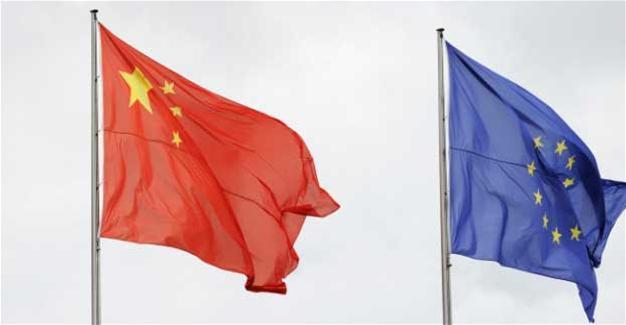EU, China seek to save Paris deal, US pulls out
 The EU and China moved June 2 to fill the leadership void on the Paris climate pact after President Donald Trump pulled the U.S. out of the deal, triggering a furious global backlash.
The EU and China moved June 2 to fill the leadership void on the Paris climate pact after President Donald Trump pulled the U.S. out of the deal, triggering a furious global backlash.Trump announced June 1 at the White House his administration would immediately stop implementing the “bad” 195-nation accord brokered by his predecessor Barack Obama in 2015 in tandem with Chinese leaders.
In what could turn into a global diplomatic realignment, the European Union and China held summit talks that EU chief Jean-Claude Juncker said could be a signal to the world.
“There is no reverse gear to the energy transition, there is no backsliding on the Paris agreement,” Juncker said as he opened trade and climate talks with Chinese Premier Li Keqiang in Brussels.
In his speech, Li warned the world would become “a jungle” without multilateral rules, though he did not mention the Paris pact specifically.
Expressions of shock and regret came from around the world, including from Pacific islands at risk of being swallowed by rising seas and who accused Washington of “abandoning” them.
In Beijing, Chinese foreign ministry spokeswoman Hua Chunying said “China as a responsible major country would uphold the pact.” China is the world’s biggest greenhouse gas emitter, followed by the U.S.
German Chancellor Angela Merkel pledged “more decisive action than ever” to protect the climate after Trump’s “highly regrettable” decision.
In a nationalistic “America First” Rose Garden announcement, Trump said he was withdrawing from a deal that imposes “draconian financial and economic burdens” on the United States, while going to easy on economic rivals China, India and Europe.
“We don’t want other leaders and other countries laughing at us anymore. And they won’t be.”
Trump offered no details about how, or when, a formal withdrawal would happen, and at one point suggested a renegotiation could take place. That idea was unceremoniously slapped down by furious allies in Europe, who said the deal would stand.
Juncker denounced as “seriously wrong” Trump’s decision to pull out of the deal while climate action and energy commissioner Miguel Arias Canete pledged “continued global leadership” on fighting global warming.
“The agreement cannot be renegotiated,” France, Germany and Italy said in a joint statement.
The United States is the world’s second largest greenhouse gas emitter after China, so Trump’s decision could seriously hamper efforts to cut emissions and limit global temperature increases.
Trump faced domestic shock and anger, including from Obama, who said the United States was “joining a handful of nations that reject the future.”
Nicaragua and Syria are the only countries not party to the Paris accord, the former seeing it as not ambitious enough and the latter being racked by a brutal civil war.
The Democratic governors of New York, California and Washington states formed a quick alliance, vowing to respect the standards agreed on in Paris.
Trump’s decision is likely to play well with the Republican base, with the more immediate damage on the diplomatic front.
Vice President Mike Pence, said that Trump “has demonstrated his commitment not just to keep his word, but to put American workers, American consumers, American energy, and the American people first.”
Withdrawal opponents, said to include Trump’s daughter Ivanka , had warned that the U.S. global leadership role was at stake, along with the environment.
A dozen large companies including oil major BP, agrochemical giant DuPont, Google, Intel and Microsoft had urged Trump to remain in the deal.
Ultimately, the lobbying by Trump’s environmental protection chief Scott Pruitt and chief strategist Steve Bannon urging the president to leave won out.
Following the announcement Tesla and SpaceX boss Elon Musk, and Disney chief Robert Iger, announced they would no longer participate in presidential business councils.
The Paris Agreement commits signatories to efforts to reduce greenhouse gas emissions that cause climate change, which is blamed for melting ice caps, rising sea levels and more violent weather events.
















